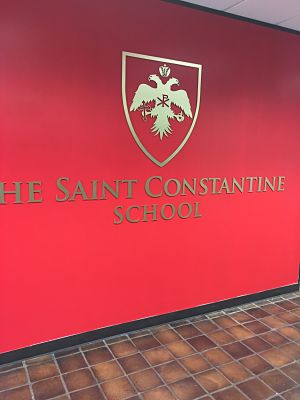
We know what to do, but few seem willing to do it. Education needs to return to eternal ideas and reject repeating yesterday. We desperately require entrepreneurs and innovators, but our 1950’s style education model is administration directed where innovation is a “problem.”
Worse are schools in the grip of innovation for the sake of some favored ideology whether in the fundamentalist religious schools or the politically correct secular school. Education requires wonder and wonder dies when we know all the answers or are afraid to ask certain questions.
Our education models veer between traditionalist programs looking to the nineteenth century or progressive ideas grounded in hope more than experience. American experience says neither works: nothing is so dated as what is up to date and the “past” is not sanctified anymore than the present. Repeating the mistakes of yesterday helps us avoid the mistakes of today by simply being obviously wrong for everyone to see.
The American school of the 1950’s was good for the post-war period. Growth was the goal and the college became a university and the university became a city. The college experience was a blend of rowdy dorm life, rah-rah-sis-boom-bah football, and job preparation. If the liberal arts core started to slip, the veterans of World War II had learned to be men and women elsewhere.
The heroes of Iwo Jima did not need “socialization.”
Mass education was acceptable to a society that also had mandatory military service for American males. We eliminated the draft, but did not strengthen the college curriculum. Administration grew, but teachers’ and professors’ ranks did not keep pace.
So what must we do?
First, we must have local education. Graduate education requires heavy resources for advanced study. Most undergraduate education does not. For most students, making sure that all read well, write well, think well, are numerate, and bilingual would be a great start. The time has come to meld much of undergraduate education with lower school. K-college will save money and return power to teachers.
 Second, we must eliminate administrators. Everyone should teach. If a job needs to be done, give a teacher some release time to do it, but make sure everyone teaches every term. Colleges have become dominated by finance, recruitment, student life, and roles that rarely teach. As a result, decisions are made by people whose “war stories” of the classrooms are often decades out of date or non-existent. Small, local programs do not require giant infrastructures.
Second, we must eliminate administrators. Everyone should teach. If a job needs to be done, give a teacher some release time to do it, but make sure everyone teaches every term. Colleges have become dominated by finance, recruitment, student life, and roles that rarely teach. As a result, decisions are made by people whose “war stories” of the classrooms are often decades out of date or non-existent. Small, local programs do not require giant infrastructures.
Third, we must value research by our teachers: kindergarten through college. How? Part of teaching well is having time to become more expert in your area of interest. Schools can give generous sabbatical and release time polices for reading and research if they remain small.
Fourth, sports must be returned to intermural or informal competition between local schools. The goal should be to have all students playing every year and few merely watching. Nobody should get a scholarship to go to university to play a game. Simultaneously, more money should be deployed to life long outdoor and athletic endeavors . . .
Fifth, we need fewer grad programs of low quality and more graduate programs that center on real research and study. Too many schools grow through the multiplication of credentialing programs that do nothing to change the intellectual climate of our time.
Many schools (especially struggling Christian schools) should devolve. They should set up small, local campuses coordinated with classical, Christian schools all over the region of service. They should cooperate with other schools of like faith in the area and stop duplicating programs. We need fewer schools and more cooperation.
The American university reflects the corporate world of the the 1950’s that gave it life. It must die and the new model: lean, student and teacher centered, and local must replace it. This is the chance for Christians to lead and not follow. We don’t need another USC, Baylor, or Rice. We have those schools. Instead, it is time for the school of the twenty-first century!
God help us!












